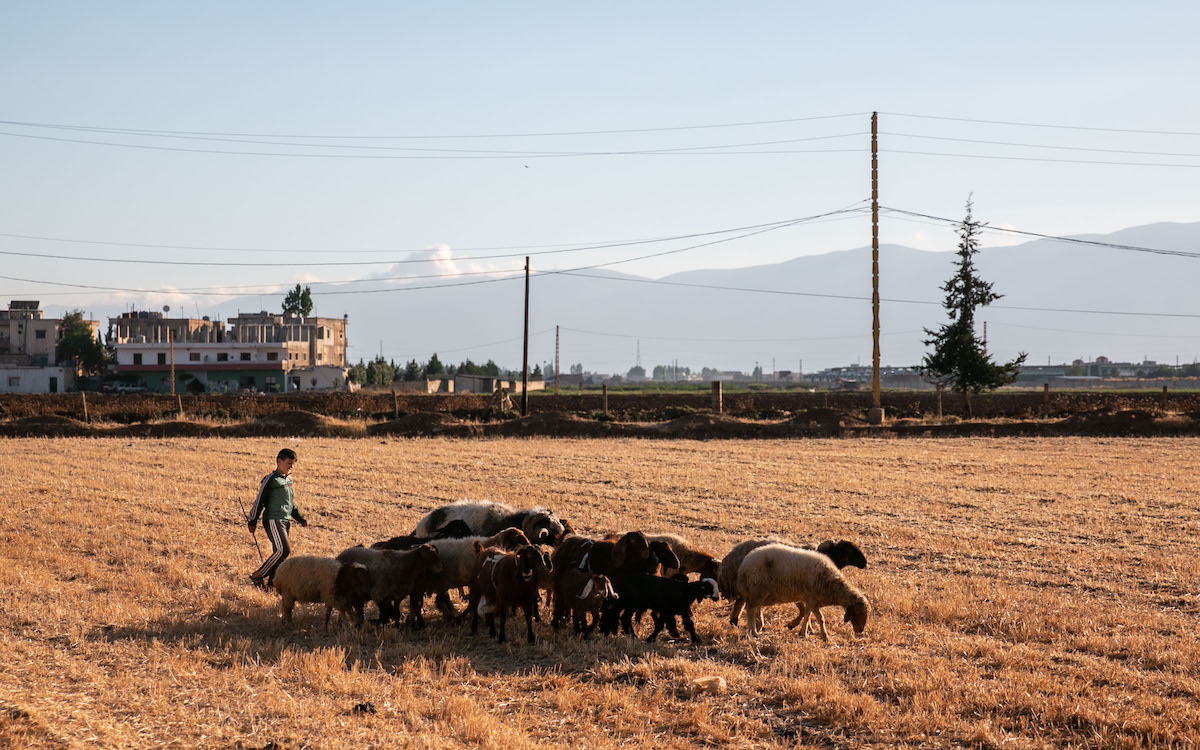
A few potatoes, some tomatoes, and rice if they are lucky. The rest of the time, it is bread flavored with zaatar.
That is what 50-year-old Mohammad Ahmad and his family of eight eat in a day. Mostly, they prepare only two meals—one in the morning and another in the late afternoon, which combines both lunch and dinner.
The family survives on charity and odd jobs that Mohammad can find in Lebanon’s northern port city of Tripoli.
Originally from Hama, northern Syria, the Ahmads fled to Lebanon in 2011 at the start of the civil war.
Like many of their neighbors in the central district of Zehrieh, their refrigerator is empty. And just like much of the country, the Ahmads also have no electricity, because the government has run out of money to supply fuel. A private generator is an alternative, but one that has become increasingly expensive and often too weak to provide power to appliances.
“It has become more and more difficult to put food on the table,” says Mohammad.
For almost three years, his family has relied on pitta bread and zaatar to fill their stomachs when nothing else was available.
“That was the meal of the poor in this country,” he said, “but now, it’s even hard to get bread.”
The United Nations has warned that over 70 percent of Lebanon’s six million population live in multidimensional poverty—a chronic deficiency in health, education, and standard of living.
UNICEF has warned that 30 percent of Lebanese children skip meals and go to bed hungry.
For refugees, the situation is even worse. Lebanon, a country of roughly four million, hosts an additional 1.5 million Syrian refugees, as well as 180,000 Palestinians. Neither of these groups have the right to work and are dependent on aid or black market jobs. Meanwhile, a staggering 99 percent of Syrian refugees in the country do not have enough food or enough money to buy food.
But these statistics are from last year.
In February 2022, Vladimir Putin invaded Ukraine—the main source of soft wheat for Lebanon’s staple food of pitta bread.
And the situation worsened.
“Before we used to buy the big bag of bread for a dollar,” says Jihad Moussa, a Palestinian refugee living in the Bourj al Barajneh camp, Beirut. “Now it’s 20 times more [in the local currency]. And it’s impossible to survive for a day without this.”
“Sometimes we can only get bread if we are lucky, and there is always a huge line in front of bakeries,” his mother Shadia added.
To add to the situation, these queues have become unsafe.
“There are always people cutting the line,” says Shadia, “and fighting over a bag of bread.”
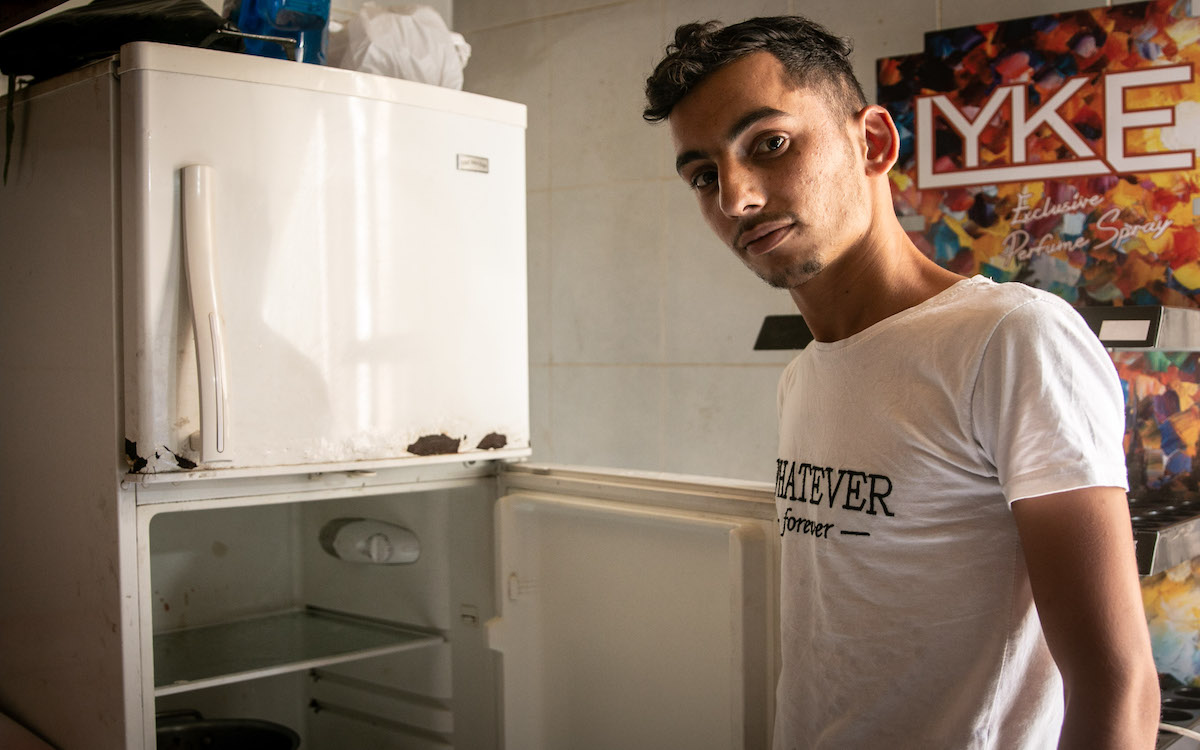
Killing for Food
Issa Shahine, 30, is glad no one pulled out a gun at his bakery this year. The young Syrian manages a branch of the chain Loubnan al-Akhdar (Green Bakery) in Tripoli. In 2022, huge lines began to form in front of his shop as people trekked from across the city to buy bread.
Over the last two years, the Mediterranean country has seen increasing incidents in which angry citizens raid food shops. On July 12, before the Eid al Adha holiday, two people were badly injured in a gunfight at a bakery in Baddawi, a suburb of Tripoli. Customers waiting in line to buy bread were enraged by queue jumpers. A moment later, someone started shooting. In April 2021, a man opened fire and injured two others in Tripoli as a local charity distributed food aid during Ramadan.
“Sometimes people get angry, people cut in line,” Shahine explains. “People come from far away to get bread. Scuffles happen.”
Lebanon is yet to emerge from the financial collapse that began in October 2019, which the World Bank called “the worst [crisis] the world has seen in 150 years”.
A financial disaster, a breakdown in food supply, and rising prices for flour and fuel have led to bread shortages in Lebanon. The cost of food in general has risen beyond reach for many Lebanese. Since the war in Ukraine began, many bakeries have shut their doors.
The government attempted to set the price of bread, and now provides subsidies for about 36,000 tons of flour per month. Mills import the wheat at the market price with foreign currency and deliver the flour to bakeries. The mills should receive reimbursements from the Central Bank, but payments are always late, as the institution is running out of its foreign currency reserves.
The flour that bakeries receive is not enough to produce bread for everyone, so many bakeries resort to buying flour on the black market, says Shahine. Because many importers sit on their stocks, and a black market sells flour at a high price, this has led to shortages. As a result, many bakeries sell bread at over twice the government guidelines, which means four dollars for a ‘bundle’ of pitta, which can feed one family for a day. The median monthly wage in Lebanon is around 675,00 lira, or a little over $17 at the market rate.
The bread crisis has also been at the heart of social and political friction. According to a report by Save the Children from August, street gangs have attacked Syrian refugees for buying more bread than the Lebanese. Some bakeries have also refused to sell to Syrians.
Shahine, who came from Syria when he was ten, says he has a hard time keeping the bakery open, but has a moral duty to do so because most people in impoverished neighborhoods of the city need bread to survive.
“Bakeries are closing,” he says, “but we must have a conscience and provide bread for people.”
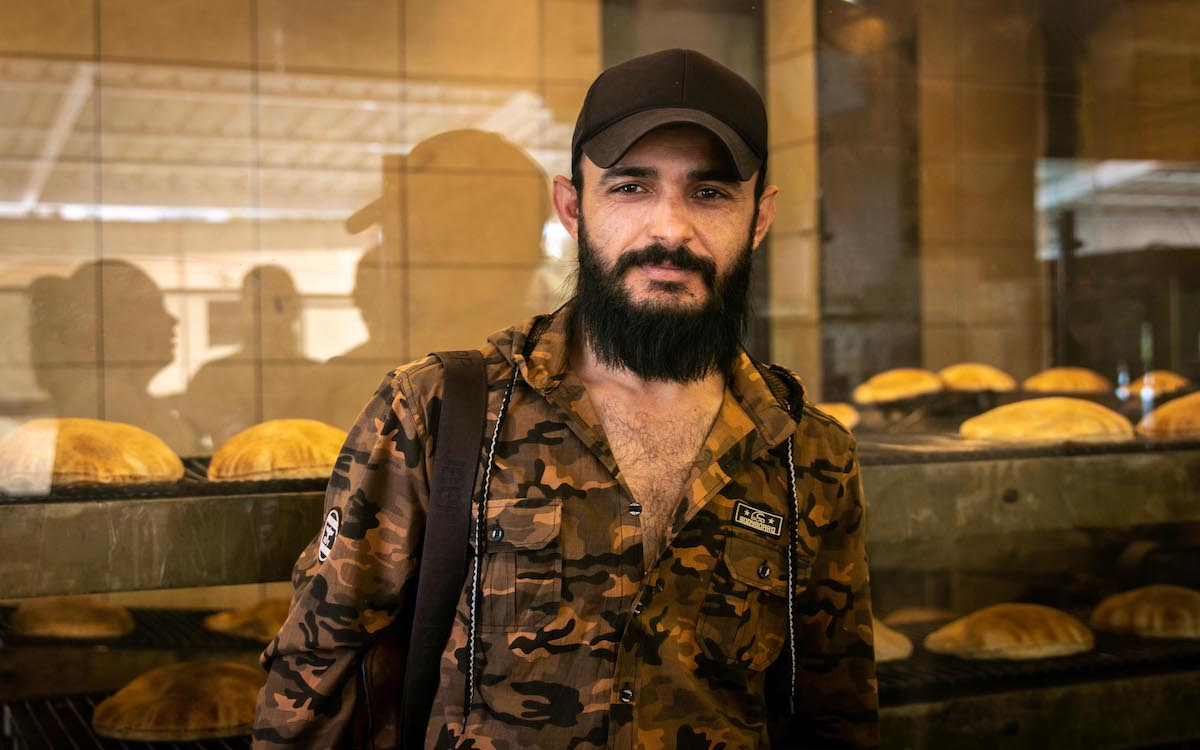
Foreign Cash: Caught Up in Politics
International donors could solve the crisis. The money is available. But it has not reached Lebanon.
In 2021, the country’s negotiations for a loan with the International Monetary Fund were blocked due to bickering among political factions in Beirut.
A new government was formed in September 2021, led by former Prime Minster Najib Mikati, a telecom tycoon deemed the richest man in Lebanon. Since then, the parliament continued to fail to adopt legislation to protect the vulnerable, the state ran out of resources, the Central Bank ran out of foreign currency, and the local currency, the Lebanese pound, lost over 90 percent of its value within a year and a half. Negotiations with the IMF are still ongoing although they have reached a staff-level agreement.
The result? Commercial banks limited clients’ access to their own savings, curtailing cash withdrawals and triggering riots. Lebanon is dependent on imports for fuel, and the lack of foreign currency to buy this from the international market led to an energy crisis in the summer of 2021. Importers stopped delivering fuel, electricity plants halted production, and private electricity generators increased their fees.
On May 9, 2022, the World Bank approved a $150 million loan to secure food for Lebanon, especially wheat, but the conditions of the loan need to be approved by the Lebanese Parliament.
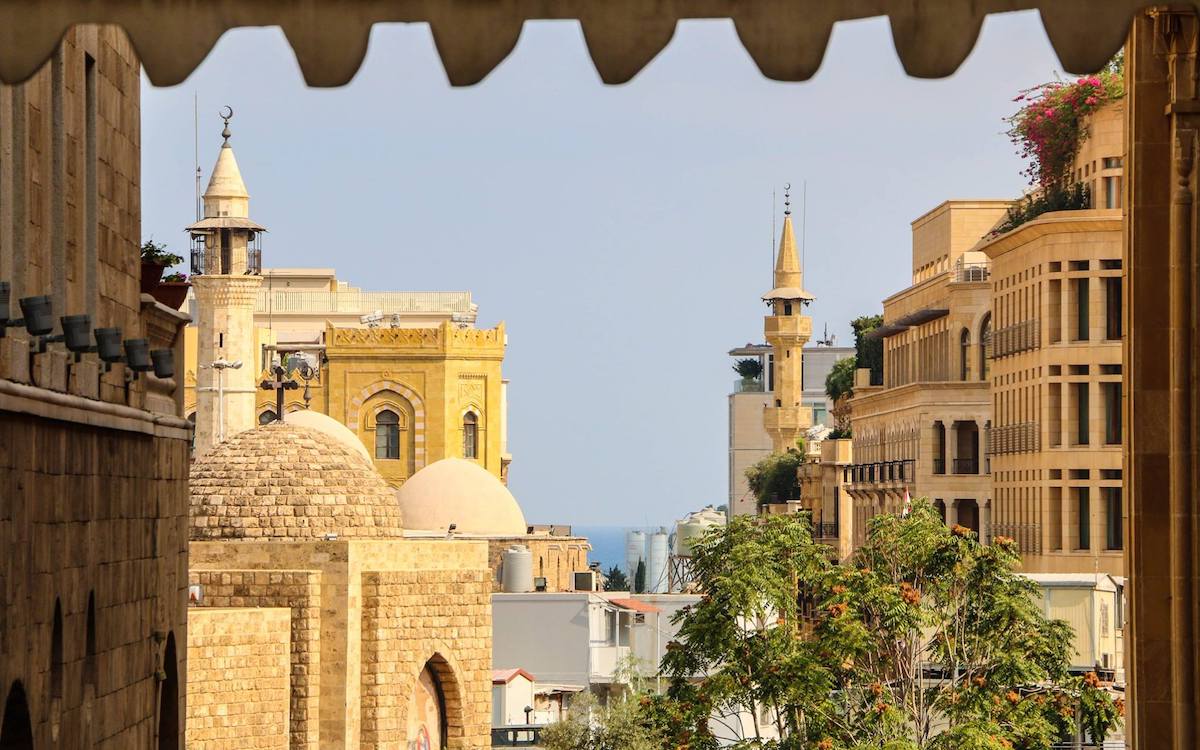
Food Security: Non-Existent
The Middle East’s bread crisis is not just a consequence of the global crisis, but also of decades of poor domestic agricultural and economic policies, according to Human Rights Watch researcher Sarah Saadoun.
“One of the major issues in the Middle East is that it depends on imports,” she says. “This weakens the extent governments can ensure the domestic production of food or domestic stocks.”
Lebanon’s lack of storage facilities also makes it dependent on immediate imports and more vulnerable to price fluctuations and speculation on the market.
There is no longer anywhere to store grain in Lebanon. On August 4, 2020, 2,750 of tons of ammonium nitrate stored in the neglected hangar 12 in the Beirut port blew up, destroying large parts of the city, killing at least 260, and wounding thousands. The blast also destroyed the only two grain silos in the country, leaving Lebanon with nowhere to store reserves. The government announced at the end of July that new silos would be built to help ease the price pressure, and that several countries were willing to donate $100 million for the project. But this is yet to happen and, even if the project receives funding, it would take years for the new silos to be constructed.
Saadoun also says there are certain policies adopted by countries across the region which have led to the current crisis. “The governments have traditionally controlled the price of food through subsidies,” she says. “This is an expensive and inefficient way of controlling prices, but it is also effective in ensuring accessibility. On top of that, you add the fuel subsidy which also affects the price of food, and you get a perfect storm of horror.”
Several Middle Eastern countries also suffer from poor social security. “[The Government] controls prices for necessities, but does not give the people any safety net for old age or unemployment,” adds Saadoun. “Then they start removing the subsidies, but the social protection programs are still not there, or are pathetically underfunded. Taken together, that’s why I think the Middle East is in a bad situation, and we haven’t even started to discuss the politics of the region, which is a hellscape.”
As the war in Ukraine drove prices up on the global market, Lebanon was without electricity, fuel, and money, without storage facilities, and lacked domestic food production.
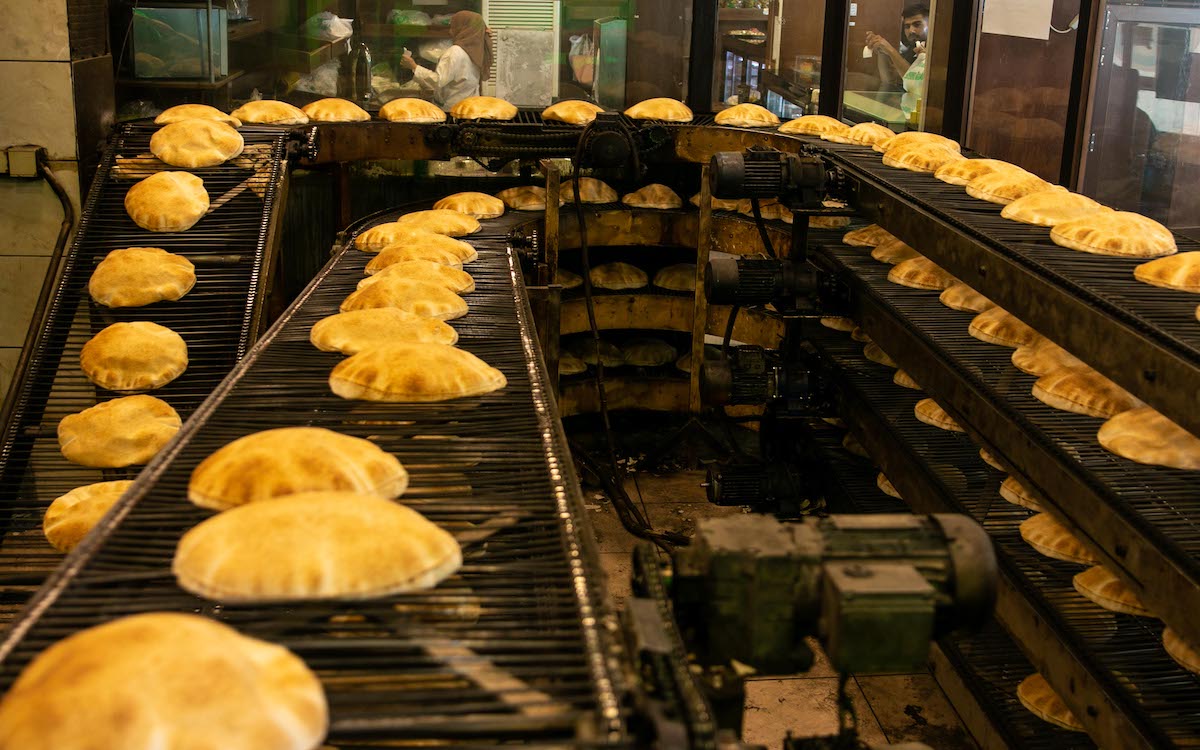
When there is a black market for bread
The crisis has rendered bread as a black-market commodity.
Caretaker Economy Minister Amin Salam has accused mills and importers of producing a wheat crisis in order to exploit government aid. He believes that they have been selling subsidized flour on the black market, or smuggling it to Syria. Importers brought in 45,000 tons of wheat in June 2022, while Lebanon only needs 36,000 tons to produce bread. This is an “over-supply” of 33 percent in the middle of what should be a global shortage. The implication is that importers, or middlemen, are trafficking grain to Syria.“Stealing public money, hitting food security and stealing people's bread constitutes a destabilization of national security,” Salam said in a press conference in July.
The importers argue that although food prices have risen, a major challenge for them is a lack of funds.
Eleven Lebanese private companies buy wheat on the international market in dollars. They also operate mills and deliver flour to bakeries across the country. The Lebanese Central Bank reimburses these companies with subsidies.
However, because the Bank is short of cash, reimbursements are often late and importers are struggling.
According to a report by the Ministry of Economy at the end of April, representatives of importers said the supply of grains is not yet a problem.
Due to the Russian invasion of Ukraine, Lebanese mills imported six tons of wheat from Moldova, through the Romanian port of Constanța, another 7,500 tons of Romanian wheat at $465 per ton, and another shipment from the UAE, which was made up of Ukrainian wheat from before the conflict.
Since the war, the prices of wheat increased and fluctuated between $460 and $520 per ton, mill representatives said. But the main problem is not the availability of the product, but the Lebanese Central Bank’s failure to pay subsidies.
The Federation of Bakery Syndicates replied by warning the Economy Ministry that if the government did not authorize payments for flour deliveries, then ‘the government itself' would have to start making bread and delivering it to the people.
But what about domestic production? Could Lebanon ensure its own food security by producing wheat?
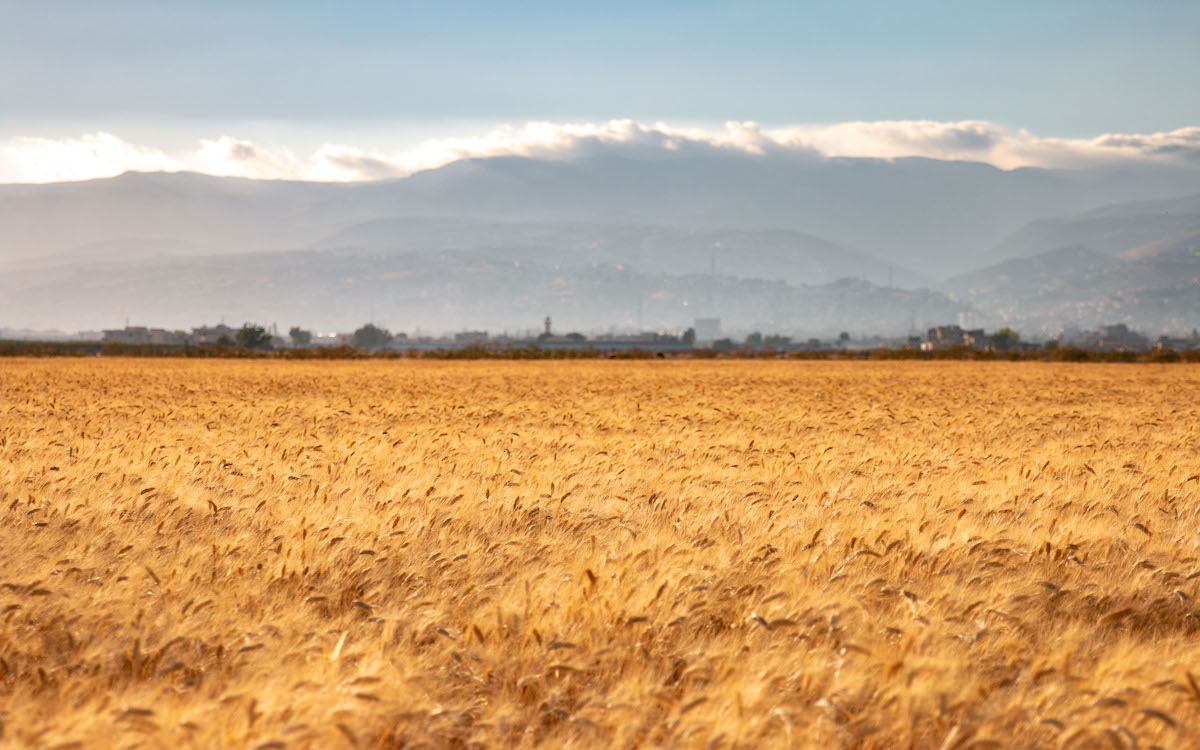
Lebanese Wheat: Exported to Italy
In Sultan Yaacoub, a village on the border with Syria, at the bottom of the Anti-Lebanon Mountains, in the small and fertile Bekaa Valley in which most of Lebanon’s crops are grown, small patches of wheat are mixed with potato fields, and orchards.
Najib Fares, a tall man in his early 50s, sits on a plastic chair in front of his country house that oversees a potato field.
Government aid for farmers, he said, stopped coming in 2018, and they currently prefer to produce crops that bring in more money than wheat. The hard wheat they cultivate here and there is only used to rotate crops.
“All wheat we produce in Lebanon we sell to a dealer, and they sell it abroad because farmers need foreign currency to survive,” Fares explains. “We sell to intermediaries abroad, not for our own country.”
According to government data, some Lebanese durum wheat is exported to Italy. The last reported transport, however, was in 2017: 2.3 tons sold at slightly over $5,000.
A study on Lebanese agriculture published by the UN Food and Agriculture Program (FAO) reports that public expenditure on agriculture is low, accounting for about one percent of the national budget. Neglecting agriculture is a tradition for Lebanese governments, as the economy focused more on services, which brought 60 percent to the country’s GDP.
The study points out that, given the traditional lack of focus from the central government, the country has developed a system based mostly on family farms meant to ensure subsistence. The last agricultural census performed in Lebanon in 2010 shows that 70 percent of Lebanese farmers own less than one hectare of land.
Lebanon’s few farms are mainly producers of fruits and vegetables, and the FAO report does not even mention wheat among the top 15 crops.
Fares says that, if before 2011 most seeds and fertilizers came from Syria, the civil war forced Lebanon’s farmers to find alternative sources which drove the prices up. Now they simply find ways to survive by cultivating what sells for a better price: potatoes.
But Syria still remains key for many Lebanese entrepreneurs. For Fares, living in a border town makes him aware how much smuggling of subsidized goods from Lebanon to Syria has been going on in the past years, including fuel and flour.
“30 percent of our imports are going to Syria,” Fares said. “Smuggled. They bring it in at the 1,500 Lebanese Pound/dollar with subsidies, and they sell it at market price in Syria.”
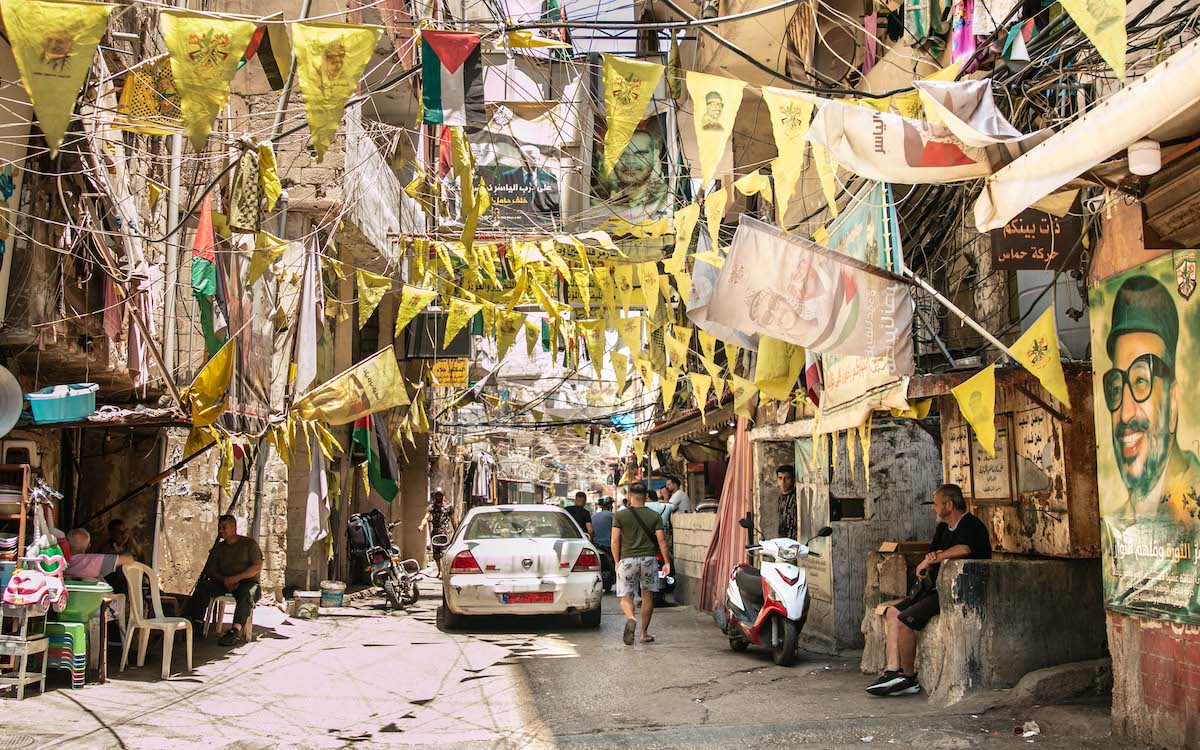
“Global Access To Bread is the Problem. Not Supply”
Lebanon is not alone in its suffering. Millions of people living in several Middle Eastern countries are currently deprived of vital nutrients, especially in war-torn Yemen.
But the primary reason is not a “supply issue” of necessary cereals, according to Sophia Murphy, executive director of the US-based Institute for Agriculture and Trade Policy.
Instead, the problem is an “access issue” as millions lack access to food that is readily available.
Financial and political crises encourage financial speculation on the markets, which can force food prices to rise out of the reach of the purchasing power of poorer economies. This happened after the global financial crash of 2008, and is recurring in 2022, following Russia’s invasion of Ukraine.
There is not really a shortage of wheat, but a climate of fear on the market, uncontrolled speculation and the impossibility of holding any actor on the market accountable.
The grain market is controlled by a few powerful traders.
“It’s not that they’ve raised the price, they don’t need to raise the price, they sit back and take advantage of the fact that Putin has raised the price, that the actions of Russia have raised the price,” says Murphy, “and then they have the knowledge to take advantage of it.”
Countries such as Lebanon and Egypt find themselves in a dilemma. Should they buy cereals when the prices are at an all-time high, taking into account they could make deals for a supply that arrives in six months' time? Or should they wait to see if the price falls? If they choose the latter path, they risk the price becoming even higher, and could fail to secure a supply of goods.
“Countries like Lebanon and Egypt, who have a social contract that they’ve agreed on to provide a food ration of some kind, haven’t got room for maneuver to wait and see what happens,” says Murphy. “At some point, they have to commit [to a purchase of cereals]. They have to guess if the grain keeps getting higher or will go down.”
The problem, she adds, is that grain is treated on international markets as a commodity, and not a basic human right, accessible to all. So far, there has been no real attempt at the global level to hold the market accountable or at least to keep some of the grains outside of trade to ensure that the population in countries that cannot afford to subsidize will not starve.
Ana Maria Luca is the former managing editor or @NOW_leb. She tweets @AnaMariaLuca79.
Philippe Pernot is a journalist and photographer with NOW Lebanon. He studied political science in France and Germany, and he focuses his work on social movements such as feminism, ecology and anarchism, as well as on minority rights and discrimination. Follow him on Instagram.
Jihad Moussa, Hussein al-Freij, Michael Bird, Paolo Riva and Vlad Odobescu contributed to this report. Infographics: Razvan Zamfira
The production of this investigation was supported by a grant from The Journalism Fund.









